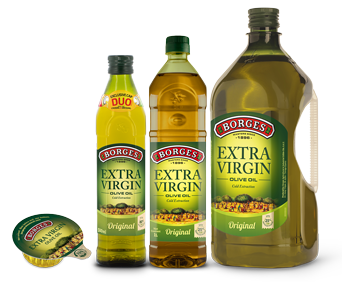Exploring the Various Types of Olive Oil and Their Uses, Consisting Of Bonus Virgin Olive Oil
The expedition of olive oil encompasses a varied array of types, each offering cooking applications and unique tastes. Bonus virgin olive oil, renowned for its exceptional top quality and wellness benefits, offers as a staple in numerous cooking areas, yet it is just one facet of this diverse active ingredient.
What Is Olive Oil?
Acquired from the fruit of the olive tree, olive oil is a staple in Mediterranean food and a vital ingredient in different cooking applications. This flexible oil is generated by pushing whole olives, causing a fluid that differs in flavor, scent, and shade depending upon the sort of olives utilized, the region of cultivation, and the extraction process. Olive oil is primarily made up of monounsaturated fats, particularly oleic acid, which is recognized for its possible health and wellness advantages, consisting of anti-inflammatory buildings and cardio assistance.
In addition to its culinary uses, olive oil has a long background of application in standard medication and skin care, owing to its abundant antioxidant material (extra virgin olive oil benefits). The oil is usually made use of in dressings, sauces, and for cooking techniques such as sautéing and roasting. Its unique flavor profile can boost the preference of different meals, making it a crucial active ingredient for both home chefs and expert chefs
Additionally, olive oil is celebrated for its duty in the Mediterranean diet plan, which is related to various health advantages. As understanding of these advantages grows, olive oil continues to gain appeal worldwide as an essential element of a healthy way of living.
Kinds Of Olive Oil
Understanding the different types of olive oil is crucial for both culinary fanatics and health-conscious consumers. Olive oil is identified mainly based upon its extraction approach and quality, which substantially impacts its scent, taste, and health benefits.
:max_bytes(150000):strip_icc()/evoo-7c819bcdd0c343a7bae114cbc9baea2f.jpg)
Light olive oil, despite its name, refers to a lighter taste and not reduced calories. It is optimal for those seeking an extra refined taste in dressings and marinades. Additionally, there are flavorful olive oils infused with herbs, seasonings, or citrus, which can enhance dishes without the need for extra seasoning.
Each kind of olive oil offers specific culinary purposes, and recognizing these distinctions allows customers to make educated choices that straighten with their cooking designs and health and wellness objectives.
Extra Virgin Olive Oil
Extra virgin olive oil (EVOO) is widely considered as the greatest quality olive oil offered, celebrated for its abundant taste and various health benefits. To be categorized as extra virgin, the oil has to be created from fresh olives making use of mechanical processes, without using solvents or extreme heat. This precise approach preserves the oil's all-natural tastes, antioxidants, and healthy and balanced fats, resulting in a product with a low level of acidity degree of less than 0.8%.
EVOO is plentiful in monounsaturated fats, specifically oleic acid, which is linked to minimized swelling and enhanced heart wellness. It also consists of polyphenols, effective antioxidants that may use safety effects versus chronic illness. The taste account of EVOO can vary considerably relying on the olive variety and area of production, varying from grassy and fruity to robust and peppery.

Culinary Utilizes of Olive Oil

In food preparation, olive oil can be made use of for sautéing, toasting, and cooking, giving a much healthier option to butter or other fats. Its high smoke point makes it suitable for numerous cooking techniques, while its antioxidants add to a heart-healthy diet regimen. Sprinkling olive oil over completed dishes, such as pasta, fish, or smoked veggies, can raise flavors and include a touch of sophistication.
In addition, olive oil plays a substantial function in baking, where it can change standard fats in recipes for bread and breads, giving wetness and a refined preference. It additionally functions as a base for infused oils, permitting chefs to experiment with tastes such as garlic, herbs, or chili, better broadening its cooking potential. On the whole, olive oil's convenience makes it important in both home and professional cooking areas.
Choosing Quality Olive Oil
When choosing high quality olive oil, it's important to take into consideration a number of key aspects that influence the go to website item's flavor, wellness, and scent benefits. Firstly, opt for added virgin olive oil (EVOO), which is derived from the very first cool pressing of olives and has the highest degree of anti-oxidants and advantageous substances. Try to find oils that are licensed by recognized companies, as this usually guarantees adherence to strict top quality criteria.
The packaging also plays a considerable function in protecting the oil's honesty. Pick oils stored in dark glass bottles or tins to protect against light deterioration. Take notice of the harvest day; fresher oils use premium flavor and nutritional value, so select products that are within 18 months of their harvest.
Be conscious of the taste; a good top quality olive oil must have a balance of fruity, bitter, and peppery notes, showing its splendor and intricacy. By reviewing these aspects, you can ensure you are picking the best olive oil for your culinary requirements.
Conclusion
In recap, the exploration of numerous types of olive oil discloses distinct attributes and applications, with extra virgin olive oil standing for the peak of quality due to its reduced level of acidity and high antioxidant material. Understanding the different selections of olive oil allows for notified selections in cooking techniques, advertising healthier practices while enhancing the overall gastronomic experience.
Obtained from the fruit of the olive tree, olive oil is a staple in Mediterranean food and a key ingredient in different cooking applications.The most common types of olive oil include improved olive oil, pure olive oil, and light olive oil.Bonus virgin olive oil (EVOO) is widely pertained to as the highest quality olive oil offered, renowned for its abundant taste and numerous health and wellness advantages. Opt for extra virgin olive oil (EVOO), which is obtained from the very first chilly pushing of olives and has the highest levels of antioxidants and useful substances.In recap, the exploration of various types of olive this post oil reveals distinct characteristics and applications, with additional virgin olive oil representing the pinnacle of high quality due to its reduced level of acidity and high antioxidant web content.